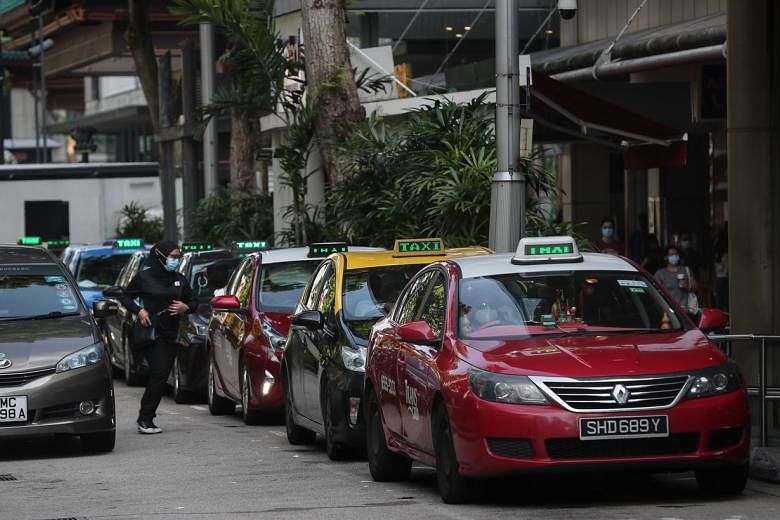SINGAPORE - A trial to equip taxis here with child booster seats has seen a low utilisation rate, with very few requests from commuters to use such seats, Senior Parliamentary Secretary for Transport Baey Yam Keng said on Thursday (March 4).
He was responding to Mr Louis Ng (Nee Soon GRC), who had asked for an update on a pilot programme launched by SMRT Taxis in March last year to progressively equip its fleet of 2,800 cabs with child booster seats.
The six-month trial was extended by three months till last December due to the eight-week circuit breaker period, Mr Baey said, and about 1,750 SMRT taxis were equipped with booster seats.
The booster seats will remain in these taxis despite the low utilisation rate and SMRT will provide further updates on their usage, he told Parliament.
SMRT is the first taxi operator here to offer free child booster seats for its commuters, and Mr Baey said the Land Transport Authority (LTA) will be glad to consider similar trials by other taxi operators.
While private cars and private-hire cars are required to have appropriate child restraints or booster seats for children under 1.35m in height, taxis are exempt from this requirement.
Pointing out this discrepancy, Mr Ng urged the authorities to look at the issue from the perspective of safety rather than practicality, noting that child seats now are compact and some booster seats can fit under the driver's seat.
"We know that children are getting injured because they're not in child car seats during accidents. We know that being in a child car seat can reduce the incidence of death by over 50 per cent," he said.
He added: "For private vehicles, if your child is not in a (child) seat, you could go to jail for it... I find it strange that (if) the same car, same model, now becomes a taxi, the safety considerations just disappear."
Mr Ng had raised a similar argument in Parliament in August 2019 during the debate on the Point-to-Point Passenger Transport Industry Bill, which was passed into law.
Then Senior Minister of State for Transport Janil Puthucheary had said that opinions on the matter were divided, and the LTA was unable to engineer a compromise on the issue when it had consulted operators and commuters for the Bill.
Mr Baey alluded to this on Thursday, noting that the Government had reached its current position following public consultation with different stakeholders.
Taxi operators had highlighted constraints, such as the need to have a minimum amount of space in the boot to fit luggage or other items carried by passengers, and requiring taxis to have booster seats would pose a challenge, especially for hybrid cars that tend to have smaller boots, Mr Baey added.
It is also not feasible for taxis to be fully equipped with "the different permutations of child restraints", and families with multiple young children may need to hail more than one taxi if the cab does not have enough child seats to accommodate them, increasing their costs.
Exempting taxis from the child seat requirement strikes a good balance, taking into account costs and operational considerations of equipping taxis with such seats while allowing equipped taxis to offer street hails for commuters with young children, he added.
"Safety is important but we really also need to consider other implications, especially when it affects the livelihood of people," he said.
Mr Baey said parents already have the option of using private-hire cars, which allow passengers to indicate if they need child seats and give drivers ample notice to prepare, while the exemption for taxis facilitates street hails.
"The 'flag, board and go' nature of street hails will be slowed down when the taxi driver needs to stop and fix up the booster seat," he said.
However, the Transport Ministry will continue to monitor the situation and might consider imposing the requirement on ride-hail type journeys that are provided by taxis, Mr Baey said.
"We will continue to consult and work with the different stakeholders as we look into this area."


